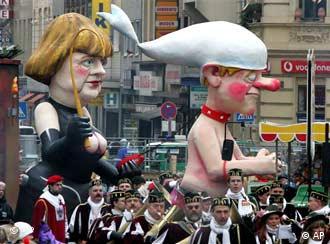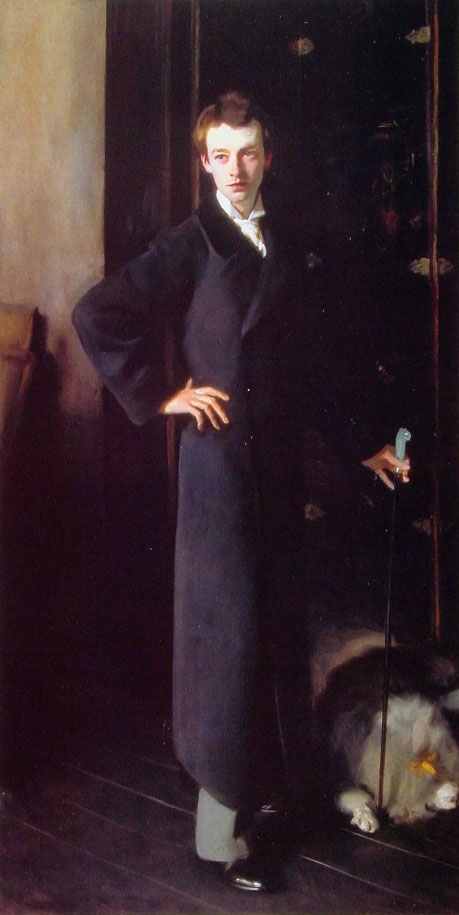French cuisine

 TOP: An informal soup kitchen
TOP: An informal soup kitchen near Gare de l'Est station in Paris.
The organizers, politically right-wing,
have been criticized because the soup
is made with pork, which they use partly
to keep away new Muslim immigrants.
(Jacques Brinon / Associated Press)
BOTTOM: Odile Bonnivard, a leader
of the community supplying the soup.
(Associated Press Television Network)
TO: bobmerk@earthlink.net
FROM: maggiexxxxxxxe@kurosawa.zbd.vl.gov
SUBECT: more ZB bad news
Dear Bob,
Bad news about the Zeta Beam. It needs a new 83J40922B tube, and the soonest we can get one from the supplier on Hoon and have it installed is around Easter Sunday (16 April). I'm really sorry you're stuck on Earth until then. We all miss you in Ciudad Vleep, especially during Carnival.
Meanwhile buddy, my advice is to try to distract yourself with the nicer things Earth has to offer -- delicious food, good wine, good fellowship. I know you're having rough times down there, but these things always do it for me when times get weird.
Hang in there, see ya around Easter.
Maggie
Margaret Xxxxxxxe
Infrastructure Chief Engineer
Akira Kurosawa Zeta Beam Drome
Ciudad Vleeptron
Vleeptron
====================
The New York Times (USA)
Tuesday 28 February 2006
Poor and Muslim? Jewish?
Soup Kitchen
Is Not for You.
by CRAIG S. SMITH
PARIS, Feb. 27 -- More than 200 political demonstrators defied a police ban here on Thursday, scurrying across Boulevard St.-Germain and under the sycamore trees of Place Maubert to engage in their forbidden action: eating "pig soup" in public.
With steaming bowls of the fragrant broth soon passing through the crowd, Odile Bonnivard, a short-haired secretary turned far-right firebrand, climbed atop a dark sedan with a megaphone in hand and led the crowd in a raucous chant: "We are all pig eaters! We are all pig eaters!"
Identity soup, as the broth has come to be called, is one of the stranger manifestations of a growing grass-roots backlash against the multiculturalism that has spread through Europe over the past 20 years. People are increasingly challenging the care taken in Nazi-chastened Europe, and in France in particular, to avoid the sort of racial or religious insults that led to widespread protests in the Muslim world this month after wide publication of cartoons considered offensive to the Prophet Muhammad.
The movement began in the winter of 2003 when Ms. Bonnivard, a member of a small far-right nationalist movement called the Identity Bloc, began serving hot soup to the homeless. At first, she said, the group used pork simply because it was an inexpensive traditional ingredient for hearty French soup. But after the political significance of serving pork dawned on them and others, it quickly became the focus of their work.
Made with smoked bacon, pigs' ears, pigs' feet and pigs' tails together with assorted vegetables and sausages, the soup [soupe au cochon, the group's rallying cry and website motto] is meant to make a political statement: "Help our own before others."
The "others," Ms. Bonnivard explained, are non-European immigrants who she and her colleagues on the far right say are sopping up scarce resources that ought to be used for descendants of the Continent's original inhabitants. In other words, the soup is meant to exclude those who do not eat pork -- for the most part, Muslims and Jews.
"Other communities don't hesitate to help their own, so why can't we?" she asked, noting that Europe's Islamic charities serve halal food to disadvantaged Muslims and that its Jewish charities operate kosher soup kitchens.
Fair enough, one might argue, but this is France, where there is little tolerance for anything that challenges the republic's egalitarian ideals.
The authorities initially left the pork-soup kitchen alone, shutting it down only once to avoid an altercation with a group of indignant French leftists. Then came the riots that swept France in October and November last year, waking the government to the deep alienation felt by Muslim youth. As winter closed in and other pork-soup kitchens run by similar-minded groups popped up in Strasbourg and Nice -- and in Brussels, Antwerp and Charleroi in Belgium -- authorities worried that they might be witnessing the start of a dangerous racist-tinged trend.
In December, Ms. Bonnivard said, a van of plainclothes police chased her soup-bearing car through the streets, and several busloads of officers arrived to stop her group from setting up at their usual spot near the Montparnasse train station, citing "the discriminatory nature of the soup."
She and her fellow soup servers filed an appeal. A Paris police spokesman said the appeal was pending and would be decided "on the basis of the current regulations, in particular concerning risks to public order and incitement to racial hatred."
They have been playing cat and mouse with the authorities since then.
Ms. Bonnivard talks glowingly of the camaraderie engendered by her group's gatherings, whose motive, she said, is to defend European culture and identity. "Our freedom in France is being threatened," she said. "If we prefer European civilization and Christian culture, that's our choice."
Even newly arrived immigrants from Eastern Europe are more welcome than Muslims from North Africa, she said, a sentiment shared by some of the diners.
"At least here there are people who are of the same mind as me," said a woman named Hélène, 61, who is not homeless but comes for soup because she has little money left for food after paying her rent. "The French, and the Europeans in general, roll over for foreigners, and particularly Islam."
This being France, most soup kitchens provide the downtrodden with a complete French dinner, including cheese and dessert. Ms. Bonnivard's group even throws in a glass of red wine with every meal.
"The only condition required for dining with us: eat pork," reads the group's Web site, which bears the image of a wanted poster for a cartoon pig in a pot framed by the words, "Wanted, Cooked or Raw, Public Disturbance No. 1."
The police initially granted permission for the "European solidarity feast" that Ms. Bonnivard's and the other right-wing soup kitchens planned last Thursday. But the authorities called late Wednesday evening to say the permission had been revoked. Officers appeared at Ms. Bonnivard's apartment at 6 a.m. Thursday to deliver a written notice prohibiting the pork-eating rally.
By evening, four police vans filled with anti-riot police officers were waiting at the group's designated meeting point outside a conservative Roman Catholic church while Ms. Bonnivard and her associates huddled in a nearby cafe, plotting diversionary tactics so they could serve their soup before the police could intervene.
"They're more afraid of us than any march by Islamists or Jews," Ms. Bonnivard's husband, Roger, declared as people slurped soup around him. (In the end, despite the official ban, the police did not intervene.)
Bruno Gollnisch, the silver-haired No. 2 in the far-right National Front of Jean-Marie Le Pen, mingled in the crowd, calling the "persecution" of the soup kitchen a "betrayal of the French identity." Others handed out slices of oily sausage as flags bearing the French fleur-de-lis fluttered overhead. There wasn't a police officer in sight.
"We're not yet living in a land of Islam," Ms. Bonnivard bellowed from atop the sedan.








